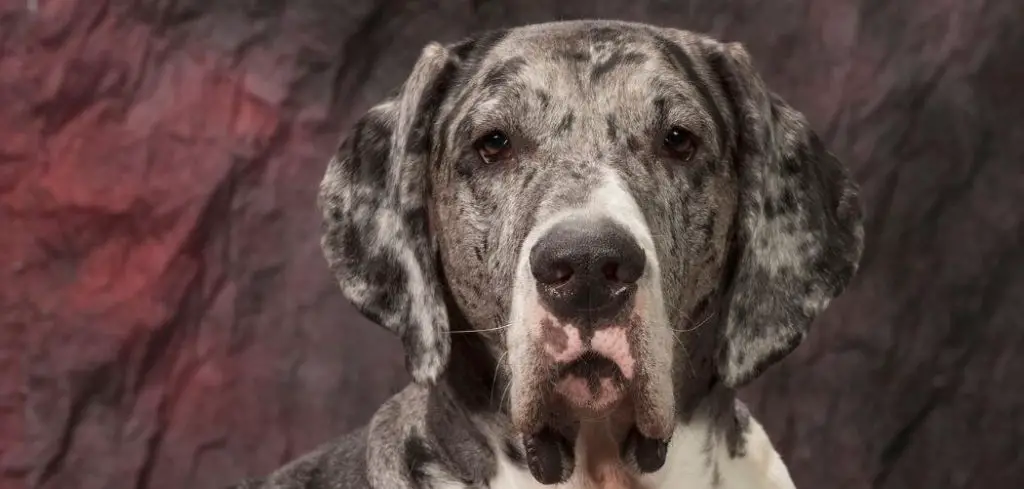It can be concerning and confusing when a dog constantly licks the couch. While it might seem like a quirky or harmless habit, excessive licking may point to underlying medical, behavioral, or emotional issues.
We outline the common reasons why a dog may excessively lick the couch, what you can do at home, and when to seek veterinary help.
Dog Excessively Licking The Couch — Why It Happens
Dogs may excessively lick the couch for a mix of behavioral, medical, and environmental reasons. Anxiety, boredom, gastrointestinal upset, nutritional deficiencies, and even compulsive disorders can drive this repetitive action.
Some dogs may be seeking comfort or trying to soothe nausea, while others may simply develop the behavior as a stress reliever. In certain cases, underlying illness or pain can also trigger excessive licking of furniture.

Dog Excessively Licking The Couch: Common Causes
Anxiety and Stress
Dogs under stress often display displacement behaviors, and licking is one of the most common. Licking the couch may give them temporary comfort or help release calming endorphins.
Owners might notice this happening more when there are loud noises, guests in the house, or changes in routine.
Over time, the dog may begin associating couch licking with stress relief, making the behavior more frequent.
Left unchecked, anxiety-related licking can develop into a compulsive habit, signaling that your dog is struggling emotionally and may need support.
Read more: Dog Excessively Licking Things (Why it happens)
Boredom or Lack of Mental Stimulation
A dog with excess energy and little stimulation often looks for outlets, and licking the couch can become one of them.
This is especially common in high-energy breeds that require more exercise and engagement.
Dogs may start licking out of curiosity and continue simply because it keeps them occupied. Without sufficient play, enrichment, and interaction, boredom can push this behavior into an unhealthy cycle.
Gastrointestinal Issues
Sometimes couch licking is linked to an upset stomach, acid reflux, or nausea. Dogs with digestive discomfort may lick surfaces to soothe themselves.
If licking is paired with drooling, eating grass, or signs of abdominal discomfort, it could point to an underlying medical issue. In such cases, the couch becomes a convenient target for self-soothing behavior.
Chronic digestive problems not only cause discomfort but also impact a dog’s quality of life, making it crucial to rule out GI conditions.
Nutritional Deficiencies
Dogs lacking certain nutrients, especially minerals or fiber, may develop unusual licking behaviors. They might instinctively lick the couch in an attempt to “search” for missing elements.
Though couches obviously provide no nutrition, the drive to lick may be rooted in a physical need. Poor diet, malabsorption, or imbalances can all contribute to this cause.
If paired with other signs such as eating dirt, grass, or non-food items, nutritional concerns should be investigated.
Compulsive Behavior Disorder
In some cases, licking couches or other non-food objects becomes a compulsive behavior. This often begins with a trigger like stress or illness, but then persists beyond the original cause.
Compulsive licking may occur frequently, sometimes for long periods, and be difficult to interrupt. This indicates a deeper behavioral condition that may require professional intervention.
Left untreated, compulsive disorders can intensify, affecting both the dog’s emotional well-being and their bond with their owner.
Residual Smells or Spills
Couches often carry traces of food smells, human scents, or spills, which attract a dog’s attention. Even small residues invisible to humans can entice dogs with their keen sense of smell.
What may look like random excessive licking could simply be a response to something tasty that soaked into the fabric. However, repeated intense licking in the absence of food cues usually indicates a deeper issue.
What to Do If Your Dog Is Excessively Licking The Couch
If your dog is constantly licking the couch, start by observing when and how often it happens. Try to identify possible triggers, such as stress, boredom, or mealtimes.
Provide more mental and physical stimulation. Regular walks, puzzle toys, and interactive games can help redirect your dog’s energy in healthier ways.
Make the couch less appealing by cleaning it thoroughly and using safe deterrent sprays if necessary. Pair this with positive reinforcement by rewarding your dog for choosing toys, chew items, or relaxation instead of licking.
If digestive issues are suspected, adjust their diet under veterinary guidance. Offering smaller, more frequent meals or higher-quality food may help ease discomfort.
Above all, remain patient and avoid punishment. Instead, guide your dog toward acceptable alternatives while you work on addressing the root cause.
When to Call or Visit Your Vet
If your dog’s licking becomes obsessive, difficult to interrupt, or is paired with other symptoms such as vomiting, diarrhea, weight loss, drooling, or lethargy, veterinary care is necessary.
A vet can rule out gastrointestinal disease, nutritional issues, or pain as underlying factors. In some cases, they may recommend diagnostic tests, dietary adjustments, or medication.
If anxiety or compulsive behavior is the cause, your vet may refer you to a veterinary behaviorist. Professional help ensures your dog receives the right support, whether through training strategies, environmental adjustments, or medical treatment.
Excessive licking is rarely “just a habit” and should not be ignored if it escalates or seems connected to other health changes.
Read more: Dog licking excessively (Discover what it might mean)
Key Takeaway
A dog excessively licking the couch may be showing signs of stress, boredom, stomach upset, or even deeper health concerns. While some cases are minor and easily corrected with enrichment and redirection, others point to medical or behavioral conditions that require professional care.
By observing patterns, offering healthier outlets, and seeking veterinary guidance when needed, you can help your dog break this habit and improve their comfort and happiness.
